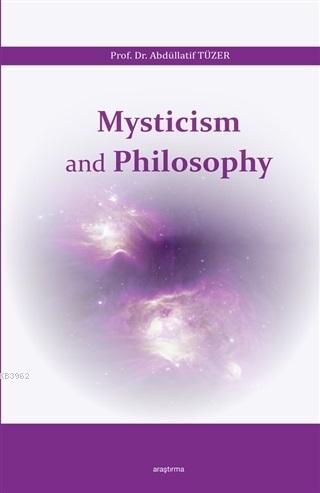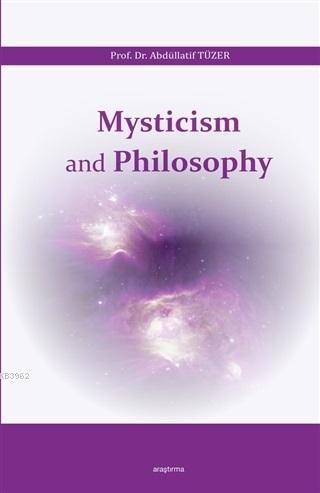9786059503556
698556

https://www.kasemkitap.com/mysticism-and-philosophy
Mysticism and Philosophy
84.00
No matter how often mystics were called psychotic, schizophrenic or paranoiac and how their experiences were equated with psychoses, only this doesn't warrant that all mystical experiences are but delusion. As we know, behind great inventions, brilliant works of art and literary works, architectural monuments and epoch-making social and political changes lie some agents or actors who were extraordinary, abnormal, mostly suffered from psychological disorders and on the verge of being a psychotic. More interestingly, do we ever evaluate, as a rule, any famous work which belongs to an epileptic, schizophrene or psychotic artist or scientist only by considering the personality disorder of its creator or some defect in creator's character and consequently regard his work as completely insane or delusion? Probably, No. The case is and ought to be same for the mystics. It is evident that mystics have made considerable contributions, especially by their works, views and traditions peculiar to them, to the earthly experience of mankind. And their mystical consciousness is not disordered, incoherent, pessimistic, anxious and incompatible with everyday life, as is the case with pychotics, schizophrenes, etc.; mystical consciousness bears a transformative power in positive sense which allows man to see, understand and interpret the world in a more wholistic, more optimistic, more friendly, more lovingly and more compassionately way. To claim that only through one kind of glasses (rationalistic or scientific kind) can the world be looked at and seen is equal to insist on an epistemic and ideological imperialism.
No matter how often mystics were called psychotic, schizophrenic or paranoiac and how their experiences were equated with psychoses, only this doesn't warrant that all mystical experiences are but delusion. As we know, behind great inventions, brilliant works of art and literary works, architectural monuments and epoch-making social and political changes lie some agents or actors who were extraordinary, abnormal, mostly suffered from psychological disorders and on the verge of being a psychotic. More interestingly, do we ever evaluate, as a rule, any famous work which belongs to an epileptic, schizophrene or psychotic artist or scientist only by considering the personality disorder of its creator or some defect in creator's character and consequently regard his work as completely insane or delusion? Probably, No. The case is and ought to be same for the mystics. It is evident that mystics have made considerable contributions, especially by their works, views and traditions peculiar to them, to the earthly experience of mankind. And their mystical consciousness is not disordered, incoherent, pessimistic, anxious and incompatible with everyday life, as is the case with pychotics, schizophrenes, etc.; mystical consciousness bears a transformative power in positive sense which allows man to see, understand and interpret the world in a more wholistic, more optimistic, more friendly, more lovingly and more compassionately way. To claim that only through one kind of glasses (rationalistic or scientific kind) can the world be looked at and seen is equal to insist on an epistemic and ideological imperialism.
Yorum yaz
Bu kitabı henüz kimse eleştirmemiş.












